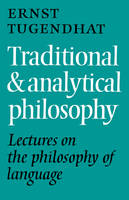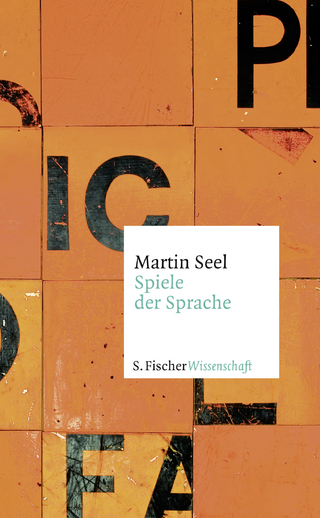
Traditional and Analytical Philosophy
Cambridge University Press (Verlag)
978-0-521-12573-4 (ISBN)
Preface; Translator's preface; Part I. Introduction: Confrontation of Analytical Philosophy with Traditional Conceptions of Philosophy: 1. A question of method; 2. A philosopher in search of a conception of philosophy; 3. Ontology and semantics; 4. Has formal semantics a fundamental question?; 5. Consciousness and speech; 6. The argument with the philosophy of consciousness continued; 7. A practical conception of philosophy; Part II. A First Step: Analysis of the Predicative Sentence: 8. Preliminary reflections on method and preview of the course of the investigation; 9. Husserl's theory of meaning; 10. Collapse of the traditional theory of meaning; 11. Predicates: the first step in the development of an analytical conception of the meaning of sentences. The dispute between nominalists and conceptualists; 12. The basic principle of analytical philosophy. The dispute continued. Predicates and quasi-predicates; 13. The meaning of an expression and the circumstances of its use. Dispute with a behaviouristic conception; 14. The employment-rule of an assertoric sentence. Argument with Grice and Searle; 15. Positive account of the employment-rule of assertoric sentences in terms of the truth-relation; 16. Supplements; 17. 'And' and 'or'; 18. General sentences. Resumption of the problem of predicates; 19. The mode of employment of predicates. Transition to singular terms; 20. What is it for a sign to stand for an object? The traditional account; 21. The function of singular terms; 22. Russell and Strawson; 23. What is 'identification'?; 24. Specification and identification. Specification and truth; 25. Spatio-temporal identification and the constitution of the object-relation; 26. Supplements; 27. Results; 28. The next steps; Notes; Bibliography; Indexes.
| Erscheint lt. Verlag | 14.1.2010 |
|---|---|
| Übersetzer | P. A. Gorner |
| Zusatzinfo | Worked examples or Exercises |
| Verlagsort | Cambridge |
| Sprache | englisch |
| Maße | 140 x 216 mm |
| Gewicht | 570 g |
| Themenwelt | Geisteswissenschaften ► Philosophie ► Sprachphilosophie |
| ISBN-10 | 0-521-12573-1 / 0521125731 |
| ISBN-13 | 978-0-521-12573-4 / 9780521125734 |
| Zustand | Neuware |
| Haben Sie eine Frage zum Produkt? |
aus dem Bereich


